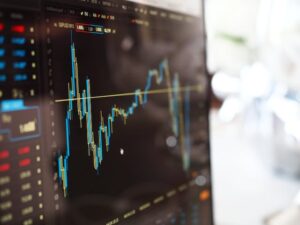
The United States Justice Department accused three JPMorgan Chase gold traders of a scheme to manipulate silver and gold markets. For eight years, from 2008 to 2016, the traders intentionally placed thousands of “spoof orders” into the system. Spoof orders are created and entered but quickly canceled. Since these spoof orders are visible to other traders, other traders might be influenced by the false orders.
Example
In one case, an order was placed to sell seven futures contracts at a price of $17.57. Then, just twelve seconds later, the same trader entered an order to buy 91 silver contracts but at a slightly lower price. A trader looking at the 91 contract (fake) order might deduce that the price of silver was falling and, therefore, think that the $17.57 deal was a bargain. The real order was completed, and the fake order was canceled.
Lots of Spoofing is Necessary to Move Prices
Spoofing creates an illusion that the market might be moving decisively in a certain direction. Some spoofers use computer-generated algorithms to handle their orders rather than manually enter and cancel orders.
It’s Illegal
The 2010 Dodd-Frank Act was a monumental piece of financial legislation that made spoofing illegal. In addition, the Securities and Exchange Commission and the Financial Industry Regulatory Authority have enacted rules concerning spoofing.
Indicted Traders Disagree
John Edmonds, one of the accused traders, said, “Our job was to do whatever it takes to make money.” Edmonds also claimed that his co-workers also used the spoofing technique. Edmonds also said that the illegal technique did its job. Edmonds further said that spoofing was an approved and expected JPMorgan trading technique. The trader didn’t even think there was anything wrong with the practice and felt he would have been fired if he had not used spoofing.
Wash Trading
Another type of illicit trading is called “wash trading.” The IRS says that a wash sale is one that happens within 30 days of a security purchase and results in a loss. Wash trading can be a conspiracy between a trader and a broker who agree to respectively buy and sell a security. Other investors may mistake the wash sales for genuine security volume increases, and therefore, they also invest in the security.
High-frequency trading aided by computer programs and algorithms can also make it easier for firms to practice wash trades without being easily detected by governmental agencies.
Part of The Job?
The indicted traders emphatically said that it was part of their job to enter spoof trades. In fact, the metals trading desk at JP Morgan was estimated to have initiated over 50,000 of these trades. Were the traders themselves liable for an action that their employers sanctioned?
If You Are in Trouble, Get Help
Bad things can happen to good people, and good people can commit illegal acts. If you have engaged in any criminal activity and are worried about the consequences, do not hesitate to seek qualified legal help from a genuine licensed attorney–not from an AI website.
If you need representation for a criminal charge in Cook County, Glasgow & Olsson is uniquely qualified to help. When you need an attorney experience matters, contact them today to learn how the firm’s experience can get you the results you deserve.



